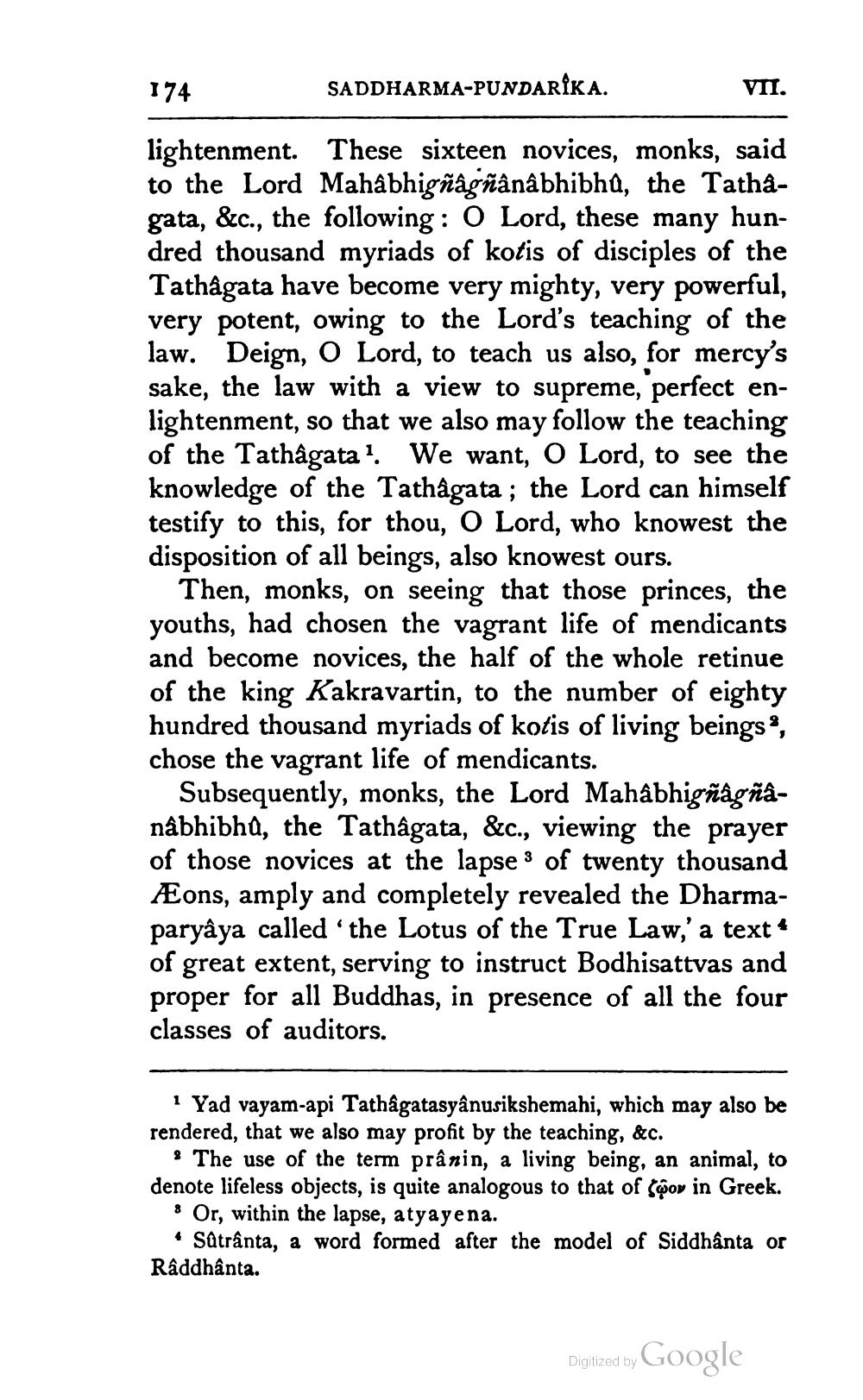________________
174
SADDHARMA-PUNDARIKA.
VII.
lightenment. These sixteen novices, monks, said to the Lord Mahâbhigñagñânâbhibhù, the Tathågata, &c., the following: 0 Lord, these many hundred thousand myriads of kotis of disciples of the Tathagata have become very mighty, very powerful, very potent, owing to the Lord's teaching of the law. Deign, O Lord, to teach us also, for mercy's sake, the law with a view to supreme, perfect enlightenment, so that we also may follow the teaching of the Tathagata". We want, O Lord, to see the knowledge of the Tathagata ; the Lord can himself testify to this, for thou, O Lord, who knowest the disposition of all beings, also knowest ours.
Then, monks, on seeing that those princes, the youths, had chosen the vagrant life of mendicants and become novices, the half of the whole retinue of the king Kakravartin, to the number of eighty hundred thousand myriads of kotis of living beings, chose the vagrant life of mendicants.
Subsequently, monks, the Lord Mahâbhigñagñanâbhibha, the Tathagata, &c., viewing the prayer of those novices at the lapse 3 of twenty thousand Æons, amply and completely revealed the Dharmaparyâya called 'the Lotus of the True Law,' a texto of great extent, serving to instruct Bodhisattvas and proper for all Buddhas, in presence of all the four classes of auditors.
1 Yad vayam-api Tathagatasyânusikshemahi, which may also be rendered, that we also may profit by the teaching, &c.
The use of the term prânin, a living being, an animal, to denote lifeless objects, is quite analogous to that of søo» in Greek.
8 Or, within the lapse, atyayena.
• Satrânta, a word formed after the model of Siddhânta or Raddhânta.
Digitized by Google




